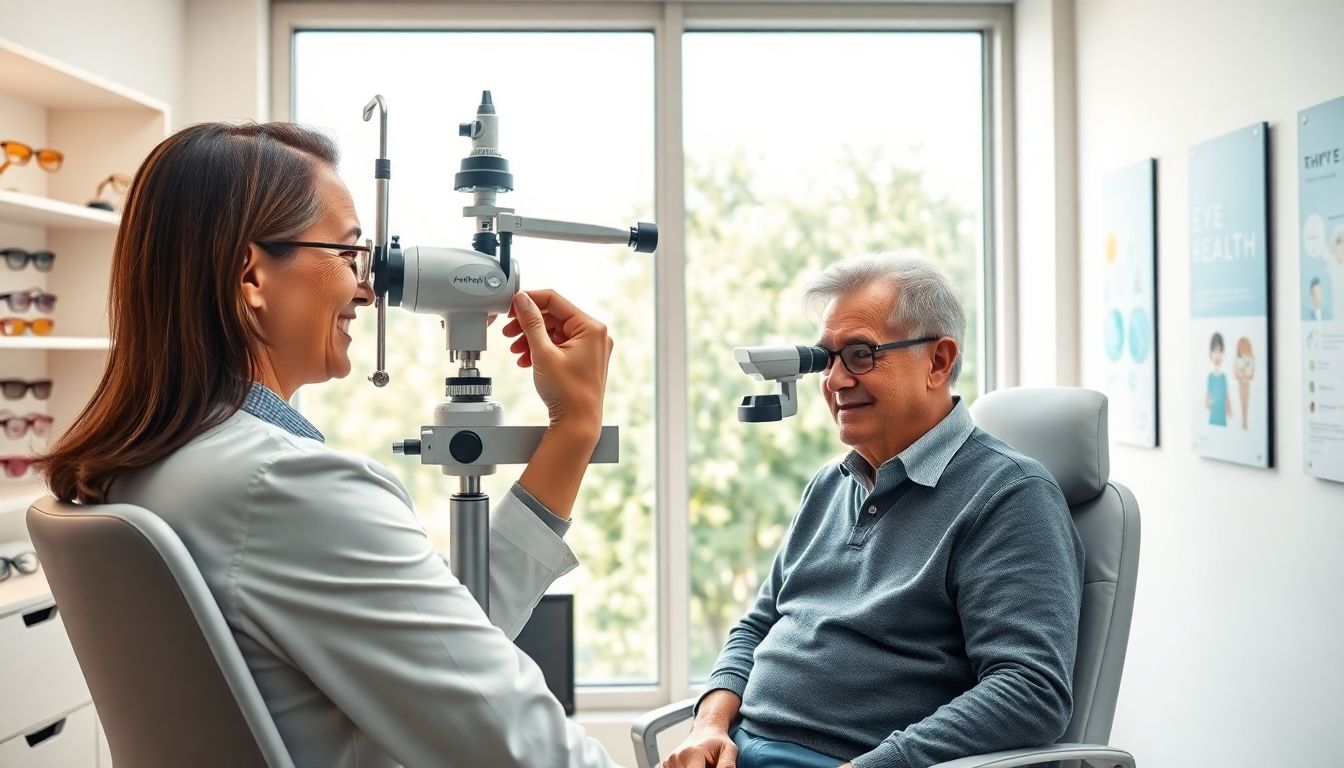
The Importance of Regular Eye Check-Ups: Preventing Vision Loss
Your vision is one of your most vital senses. It helps you see the world clearly, drive safely, and enjoy daily activities. But many eye conditions sneak up without causing symptoms early on. If you wait until you notice problems, it might be too late to save your sight. That’s why regular eye check-ups are so important. They catch issues early before they cause permanent damage. As eye conditions become more common, taking steps to protect your vision has never been more crucial. Many problems like glaucoma, diabetic retinopathy, and age-related macular degeneration can be prevented or managed if found early.
Why Regular Eye Check-Ups Are Essential
Your vision is one of your most vital senses. It helps you see the world clearly, drive safely, and enjoy everyday life. But many eye conditions develop silently, without symptoms. Waiting for problems to arise can lead to irreversible damage. That’s why routine eye exams are essential — they detect early signs of disease and help preserve your eyesight.
Understanding the Role of Eye Examinations
An eye exam isn’t just about reading letters on a chart. It is a comprehensive check-up that examines eye health and vision clarity. Eye care professionals look at how well your eyes work together, test your eyesight, and check for signs of disease. Some tests measure intraocular pressure, while others look for signs of conditions like diabetic retinopathy or macular degeneration. Routine exams are simple but vital in spotting problems early, even before symptoms appear.
The Link Between Early Detection and Prevention
Many serious eye diseases don’t show symptoms until they are advanced. Glaucoma, for example, often causes no pain or vision changes early on. Regular eye exams can detect signs like increased pressure in the eye. Similarly, diabetic retinopathy can develop silently but cause severe damage if left untreated. Early detection means treatments can begin before vision loss happens. Catching these issues early can often slow or stop their progression.
Reducing the Risk of Permanent Vision Loss
Statistics show that up to 90% of blindness caused by treatable eye conditions could be prevented with regular screenings. When caught early, conditions like glaucoma and diabetic retinopathy have many treatment options. Successful early intervention has saved many people from going blind. Real-life stories show how quick action can maintain your eyesight for years longer.
Key Eye Conditions Prevented or Managed Through Regular Check-Ups
Glaucoma: The Silent Thief of Sight
Glaucoma damages your optic nerve and is often called the “silent thief of sight” because it causes no early pain. If not caught early, it leads to gradual vision loss. Regular eye exams allow your doctor to detect increased eye pressure before significant damage occurs. Treatment can keep the disease under control and preserve your vision.
Diabetic Retinopathy
Diabetes can harm your blood vessels in the eye, leading to diabetic retinopathy. Without screening, you may not realize this condition is developing. Early diagnosis through regular exams offers options like laser treatment or injections that prevent blindness. Managing your blood sugar and catching issues early works best together.
Age-Related Macular Degeneration (AMD)
As we age, the risk of AMD increases. This disease affects the part of your eye that gives sharp vision. Early signs can be spotted during check-ups. Monitoring disease progress can help delay or prevent serious vision loss. Treatments are available, especially in early stages.
Cataracts and Other Common Age-Related Conditions
Cataracts cloud your eye’s lens and often come with age. If caught early, surgery can restore clear vision. Other issues like dry eyes or astigmatism can also be managed effectively if detected early in routine exams.
Who Should Prioritize Regular Eye Check-Ups
High-Risk Populations
People with a family history of eye disease should schedule exams regularly. Those with health conditions like diabetes or high blood pressure need more frequent screenings. They face a higher chance of developing serious eye issues and benefit from closer monitoring
All Age Groups
Everyone needs eye exams. Children should have their eyes checked starting at age three and regularly afterward. Adults and seniors must do the same, especially as eye problems become more common with age. Eye exams can detect issues early in children and keep adults’ vision sharp.
Athletes and Outdoor Enthusiasts
Those who spend a lot of time outdoors or participate in sports are at risk for eye injuries and UV damage. Regular check-ups help identify potential problems early and guide you on protection measures, such as sunglasses.
Practical Tips for Maintaining Eye Health
Scheduling and Frequency of Eye Exams
Children should have their first exam at age three and every one to two years after. Adults need exams every two years if their eyes are healthy. People at higher risk, like diabetics or seniors, should visit annually. Choose an eye care provider you trust and who listens carefully.
Lifestyle Habits That Support Vision Health
Eat foods rich in omega-3 fatty acids, lutein, and vitamins. Leafy greens, fish, and colorful vegetables are excellent choices. Protect your eyes outside by wearing sunglasses with UV filters. Keep contact lenses clean and follow your doctor’s instructions to avoid infections. Avoid smoking, which can worsen eye diseases.
Recognizing Warning Signs and When to Seek Immediate Care
If you experience sudden vision changes, flashes of light, floaters, pain, or redness, see an eye doctor immediately. These may be signs of urgent problems like retinal detachment or infections. Don’t wait — quick action can save your sight.
The Future of Eye Care and Technological Advances
Innovations in Eye Examination Techniques
New tools like OCT (Optical Coherence Tomography) give detailed images of your retina, catching early signs of disease. AI-powered diagnostics help doctors detect problems faster and more accurately. These advances make early detection easier and more reliable.
Telemedicine in Eye Care
Virtual consultations are growing, helping those with limited access to eye specialists. Remote testing devices can monitor eye health from afar. This approach makes regular check-ups more accessible and convenient.
Promising Treatments and Preventive Strategies
Emerging therapies include new drugs and laser treatments that can slow or stop eye disease progression. Staying informed about innovations helps you make better choices for your vision. Preventive care remains the key to preserving sight.
Conclusion
Regular eye check-ups are crucial to stay ahead of potential vision problems. Early detection can prevent irreversible damage, saving your eyesight and quality of life. Make a habit of scheduling routine exams, adopt eye-friendly habits, and stay alert to warning signs. Your eyes deserve the same level of care as your health. Book your next eye exam today and encourage loved ones to do the same — your vision is worth it.
Book Consultation
-
- Phone :
- Email :
- Address :
-
- +91 91199 01070
- [email protected]
- Jaishankar Building, 2/176, opposite Shiv Murti, Sector 2, Vikas Nagar, Lucknow, Uttar Pradesh 226022


